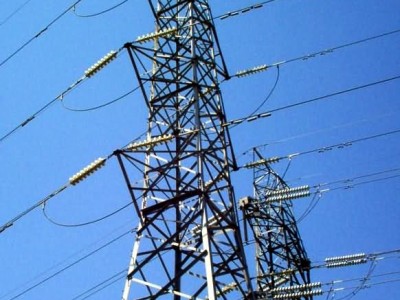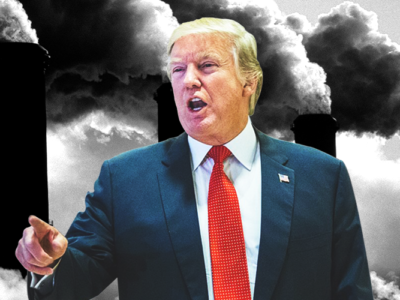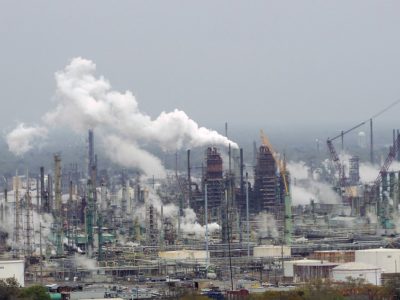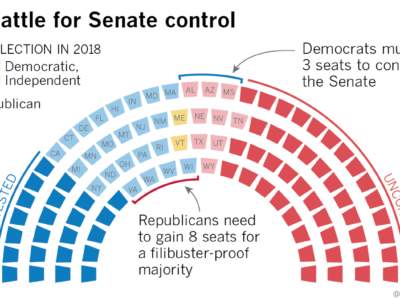Trump’s Contradictory Policies
Trump's policies clash with each other remarkably often.
A certain amount of policy inconsistency is inevitable in any Administration. But the Trump Administration seems to be breaking all records. The Administration does have strong impulses. The trouble is that its goals keep colliding. Here are some examples. Favoring gas at the expense of coal. . . And vice versa. Trump wants to promote fracking. But doing so increases the supply of natural gas and reduces the price, making coal-fired power plants less competitive...
CONTINUE READINGWheeler EPA Looking to Freeze Auto Standards, Revoke California Waiver
Lawsuits will follow
According to a Bloomberg report this morning, the Trump Administration, under new EPA Administrator Andrew Wheeler, will release a proposal later this week to freeze greenhouse gas emission and fuel economy standards at 2020 levels. The effect is that automakers will face standards of about 35 miles per gallon rather than seeing the standards increase to about 50 miles per gallon by 2025. The proposal will also reportedly revoke California's waiver under the Clean Air Ac...
CONTINUE READINGDefanging FERC’s Challenge to Renewables
The gird operator subject to the order has a plan to reduce its impact.
At the end of June, in a party-line vote, the Federal Energy Regulatory Commission (FERC) issued a sweeping order that seems designed to prop up coal. The order will impact electricity markets in a wide swath of the country. There's been a lot of concern that the order might seriously impact renewables. But PJM, which operates the grid serving 65 million customers, has proposed a narrow interpretation of the order that would blunt much of its impact. As I'll explain, F...
CONTINUE READINGResponsibility for Historic Harm
Tort law embodies our society's view of fairness. What does teach us about climate change?
Is it fair to hold companies responsible for past emissions, even if they didn’t know at the time the emissions were harmful? Shouldn’t it be a defense that they didn’t appreciate the risk at the time?Not if tort law is any guide. Tort law imposes liability for ongoing harm even though a company did not realize the risk posed by its conduct. The general test under tort law is negligence. This requires that the defendant failed to take reasonable steps to reduce ...
CONTINUE READINGGuest Blogger Benjamin Miller: Suggestions to help EPA Successfully Implement Retrospective Reviews
On June 13th, the Environmental Protection Agency (EPA) issued an advanced notice of proposed rulemaking soliciting comments on how to improve the consistency and transparency of the cost benefit analyses that guide EPA’s regulatory decision making. Both are praiseworthy goals, particularly because executive orders issued by the Trump administration last year resulted in cost benefit analysis being used not only for determining the appropriateness of individual reg...
CONTINUE READINGPreviewing California’s November 2018 Environmental Ballot Measures
Wide Array of Important Environmental Questions Confront California Voters
California's Secretary of State has certified 12 ballot measures ("propositions," in California election parlance) to appear on the state's November 6, 2018 general election ballot. Many of those propositions--indeed, fully half of the dozen measures with which state voters will be confronted this fall--involve important environmental policy and legal questions. I'll write in greater detail about several of these environmental propositions and their implications...
CONTINUE READING1½ Years of Trump
Where are we, after continual environmental assaults by Trump, Pruitt, and Zinke?
Trump has been in office for a year and a half. Where do thing stand? How permanent will the damage be to environmental protection? Answer: bad, but not nearly as it might have been. The degree of resistance especially impressive when you consider the circumstances just how much of American government is controlled by Republicans. Conservative Republicans control the Presidency,, the Supreme Court, and both Houses of Congress. At the state level, Democrats a re in...
CONTINUE READINGHouse Subcommittee Considering Clean Air Act Amendments to Weaken Bedrock of Stationary Source Permitting
Proposed changes to NSR could have significant impact on EJ communities
The House Energy and Commerce Subcommittee on Environment is currently considering amendments designed to weaken the New Source Review permitting program. The GOP proposal has been floating around since a discussion draft was released in May based on a bill introduced last year by Rep. Morgan Griffith (R-Va.), but seems to have flown under the radar until the Subcommittee announced a markup this week. These so-called “clarifying” amendments could have substantial...
CONTINUE READINGSenate Update
Will environmentalists have any leverage in the Senate? Here are the races to watch.
Where are we in the battle to control the Senate? I’ve posted previously about eight key races. Here are the current predictions from two leading forecasters. In every case where both candidates for these Senate seats have LCV scores, the Democrat’s score is at least 40% better than the Republican’s, and often the disparity is far greater. So instead of using party labels, I could have called the candidates “Pro-Environment” vs. “Anti-Environment.” Bot...
CONTINUE READINGWhat Hath FERC Wrought?
FERC's GOP majority has taken a swipe against renewable energy. It might work, or it might backfire.
At the end of June, in a vote divided along partisan lines, FERC handed down a sweeping order that will impact electricity markets in a wide swath of the country. -- likely at the expense of renewable energy and nuclear power. Unfortunately, like Trump's power plant bailout, the result may be to delay the closing of coal-fired power plants. That's a serious problem. A new study by researchers at Resources for the Future shows that a two-year delay in plant closings would...
CONTINUE READING









